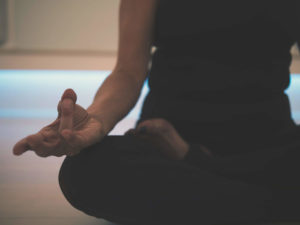The Stress Cycle: What it is and why it is important
Our bodies and the world we live in function within many cycles. The lunar cycle, carbon cycle, even our own body systems, are all small, self-contained cycles. The stress cycle is an important part of our bodies that we often ignore or forget.
Since the beginning of time, humans and animals have known about the stress cycle. The classic predator-prey scenario is a simple example of a complete stress cycle. Imagine yourself as a hunter-gatherer out in the fields, and suddenly you are being preyed upon by a lion. You likely run because your adrenaline levels are high and cortisol is running through your veins. You run, you flee, you hide. But then what? What can you do to get over this frightening moment? Your stress cycle is incomplete.
Modern equivalents can be stressful in your workplace. It is agonizing to wait for your boss to call you into a meeting. It’s hard to concentrate, you feel anxious, your stomach hurts, your brain is racing, and then you finally meet your boss. What then? If you don’t help yourself to deal with the stress, it can get stuck inside. This example may not be as “life-threatening” as the ones our ancestors faced, but our adrenaline (and cortisol) still flow in the same manner.
You might be thinking back on years of stressors, big and small, and wonder if you ever completed your stress cycle. The answer is likely no. Incomplete stress cycles can cause all kinds of problems in our bodies, including fatigue, digestive issues, and pain.
Stress is not all created equal. These stressors include racism, poverty, systemic oppression and other forms of racism. However, it is possible to learn to manage and regulate your nervous system and help you maintain equilibrium in daily life.
What’s the Best Way to End My Stress Cycle?
While some are obvious and simple, they all play an important role in our daily lives.
- Moving- Any kind of joyous movement will release neurochemicals that “flush out” adrenaline and cortisol. This doesn’t mean a 60-minute HIIT workout, but a simple walk, dance party or deep stretch.
- Slow, controlled breathing – slow and controlled breathing is a great way to ground your nervous system.
- Social interactions- social interaction reminds us to be safe and part of a larger community by connecting with others in superficial ways. A simple smile or “Thanks for your assistance” at the grocery shop can calm us down.
- Laughter – The loud and ugly type! Research has shown that laughter is closely linked to ancient biological functions.
- Crying is the ultimate stress release. Crying helps release hormones and calms the nervous system. Although it won’t change anything, crying will complete the cycle.
Reach out to licensed mental health therapists in your local area if you need help managing stress or understanding why you are stuck in incompletive stress cycles. Unprocessed and compounded stress can lead to unhappiness, and even depression.





